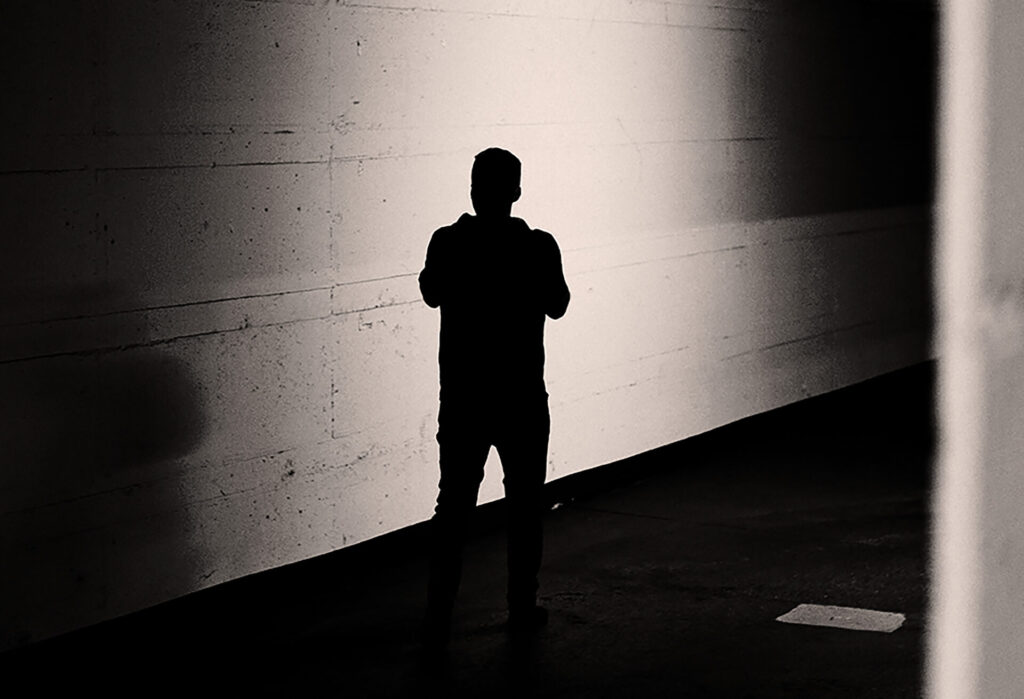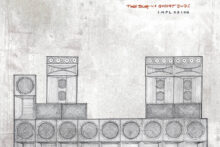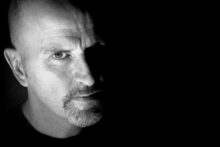In 1998 a controlled blast was used to demolish the westerly power station chimney at Shoreham-by-Sea port. Against the purple-grey clouds of a September morning a howling siren rang out only to be interrupted by a guttural crackandboom, followed by the tower’s slow-motion descent before it lurched sideways and plummeted like a chinned boxer.
My Dad had correctly presumed that twelve-year-old-me would appreciate the opportunity to see destruction on such a massive scale. Accordingly, the event has stuck with me ever since. The chimney was a looming monolith that had stood grazing the south coast skyline for around forty years. It served as a marker during childhood car journeys, heading homewards from trips out east. The sight of that column meant that we were mere minutes away from arriving home.
As someone who often enjoys the implied stasis of passive travelling – a period in which nothing can be asked of you beyond cultural consumption and perhaps a little daydreaming – this waypoint was met with an air of melancholy. It was a warning that R&R time was coming to a close and the next phase of existence, even something as innocuous as brushing teeth and going to bed, would soon be upon me.
This fed into the strange combination of plaintive awe that I felt upon witnessing something so seemingly permanent reduced not just to rubble but to dust. A landmark that had stood tall for my entire pre-teenage life now disintegrated out of sight in a garland of kicked-up detritus and, startled by a bass blast just prior to the explosive charges detonating, a portentous murmuration of starlings which swooped about the collapsing structure like dancers around a maypole.
Just north of Shoreham’s port, overlooking one of the river Adur’s many slaloming curves, sits the long-abandoned cement works. A creaking Brutalist tapestry of smashed windows, stained concrete, decrepit machinery, and corroded silos. Closed in 1991, the site attracted clandestine free parties into the Millennium. Today, it’s primarily haunted by BMWs with tinted windows, those with an affinity for painting walls with unique tags, and people taking photos for their urban exploration portfolios. Whilst they may all be interested in varying forms of distribution, there’s not a lot of manufacturing taking place.
I wouldn’t normally think of this stretch of the West Sussex seaside as industrial. These days, you’re more likely to find people sweating in the mobile sauna than from a day spent smelting. However, there are spectres of its previous functions scattered from the pebble beach to the undulations of the South Downs. Alongside the aforementioned cement works and power station, there’s evidence of shipbuilding, agriculture, and brewing dotted throughout the town. And then there’s The Ropetackle – an arts centre which greets those entering the town from the westerly bridge and recalls the town’s previous ropemaking trade.
Stuttgarter Michael Fiedler aka Jah Schulz aka Ghost Dubs has been diligently carving out a space in the experimental dub orbit since 1999. His output has warped and twisted over the past twenty-five years, taking in a spectrum of electronic influences from techno to jungle and early hardcore. It’s in the expansive bass exploration of dub, as evinced on his new record Damaged, that he packs the heaviest punch. He may never have set foot on this part of the British shoreline yet, somehow, these chthonic sonics perfectly capture both the soundscape of ruin and the haunting nature of withering production that can be sniffed out here.
As you might expect from a record released on The Bug’s Pressure label, this thing is weighty. It’s almost as if it has its own gravitational pull. The drums on ‘Second Thoughts’, for example, appear so ponderous that they could only be forged underwater with little more than your own amplified breathing resonating through the sub-aquatic environment as the rhythms roil. Similarly, ‘Circles Lines’ unleashes sub bass frequencies out into the ether that resemble life-seeking signals. ‘Hot Wired’, on the other hand, is a mixture of delicately crafted hi-hat ticks, cavernous kicks, and subterranean grooves. Tiny snatches of sound appear amidst the heavy dub rhythms: skittering backyard percussion involving rapid-tapped railings, the shook tail of a rattlesnake, metal clinks, and frail synth glissandi faltering and holding like rough hands snatching at a soggy rope.
Album opener ‘Chemical’ is a patient, focused drag through time. It’s comprised of a frazzled bassline which crawls through the undergrowth whilst drones and spotlights strafe overhead. And then a rib-cracking heartbeat thuds in.
Tracks such as ‘True To Life’ and ‘Dub Battle’ give the impression of stumbling upon a long-abandoned dancefloor. The hole-punched roof a network of gouges and wounds. Walls less stripped than crumbling. Still, the faint echoes of its past life boom interminably for those with the right kind of ear. The gently persistent propulsion intwining with reverb’s topological expansion and fading delay trails lend themselves rather well to the notion of apparitions.
Muffled groans are run through effects on ‘Thin Line’, separating them further still from their bodies. This could have been carved into existence in the shell of a mechanic’s shed. The winds of perseverance rattling rusting tools to life one final time.
Early in the twentieth century, the Italian Futurists envisioned music that mimicked the sounds of war. Early Industrial peddlers Throbbing Gristle and Cabaret Voltaire reflected the cacophony of assembly lines and machinery onto braying audiences. With manufacturing and industry a vanishing prospect in the Western world, the emptied, oxidising warehouses and steel carcasses stand as lonely monuments to decaying ideas. In their midst, Ghost Dubs utilises the low-end workouts of King Tubby, Raime’s spatiotemporal acumen, and the industrial tinkering of Missing Brazilians to haunting effect.
Consequently, there’s a dystopian atmosphere to this record. Even on ‘The Regulator’ – a relatively upbeat track – the rudimentary clangs, scrapes, scratches, splashes, whirrs, rummaging, buzzing, burrs, whomps, and clomps all suggest a semblance of industrial activity. Or, more specifically, post-industrial. Spaces originally used for manufacturing that have been requisitioned for purposes beyond global commerce. For revelry, for recreation, for community, for illicitness, for boredom, for survival.
Evidence of still-turning industry peppers the Shoreham-by-Sea coastline. The dock continues to receive deposits of timber, aggregates, steel, petroleum, woodchip, and cereals whilst the concrete plant keeps on churning. There’s still activity here amidst talks of sustainable regeneration. The ghosts haven’t settled in yet, but they’re tap-tapping on the door.





